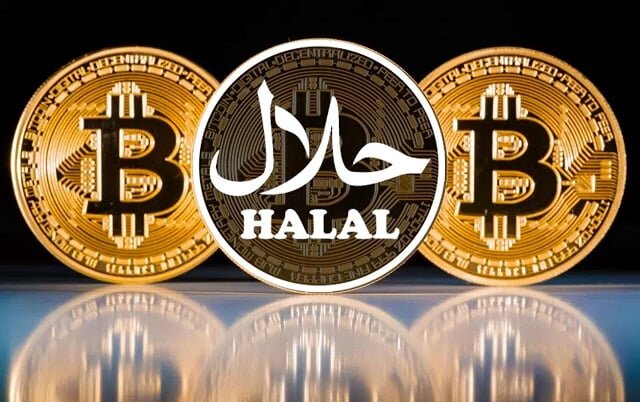Cryptocurrency has emerged as a disruptive financial innovation that has captured the attention of individuals and institutions worldwide. This article will explore whether cryptocurrency is halal (permissible) from an Islamic perspective. We will explore the fundamental principles of Islamic finance, analyze the characteristics of cryptocurrencies, and examine the arguments on both sides of the debate.
Understanding Islamic Finance
Islamic finance is rooted in the principles of Shariah, which govern various aspects of Muslim life, including finance and economics. It prohibits activities considered unethical or harmful, such as usury (riba), uncertainty (gharar), gambling (maysir), and investment in forbidden industries such as alcohol, pork, or weapons.
One of the foundational principles of Islamic finance is the prohibition of usury, which refers to the charging or paying interest on loans. Islam promotes equitable transactions that are based on risk-sharing and mutual benefit, discouraging any form of exploitation. Instead of interest-based transactions, Islamic finance encourages profit and loss-sharing arrangements, where both parties share the risks and rewards of a business venture.
Another principle of Islamic finance is avoiding uncertainty (gharar) and speculation. Transactions must be transparent, and parties should understand the terms and conditions clearly. Contracts that involve excessive ambiguity or speculation are considered invalid in Islamic finance.
Islamic finance has developed various financial products and structures to ensure compliance with Islamic principles. Some notable examples include:
1. Musharakah:
This is a partnership-based contract where two or more parties contribute capital to a business venture and share the profits and losses as stated to an agreed ratio.
2. Mudarabah:
In this contract, one party provides the capital (the investor) while the other (the entrepreneur) manages the investment. Profits are shared as attested to a pre-agreed ratio, while losses are sustained by the investor, except in cases of negligence or misconduct by the entrepreneur.
3. Murabaha:
This is a cost-plus financing arrangement commonly used in trade transactions. The seller and buyer agree on a selling price, which includes an agreed-upon profit margin. The buyer pays the seller in installments, making the purchase affordable.
4. Sukuk:
Sukuk is an Islamic bond representing ownership of a tangible asset or a specific project. They are structured to comply with Islamic principles, providing investors with a share in the returns generated by the underlying asset or project.
Islamic finance institutions, such as Islamic banks and investment funds, have emerged to cater to the specific needs of Muslim customers. These institutions operate under the supervision of Shariah boards composed of Islamic scholars who ensure compliance with Islamic principles.
Islamic finance has witnessed significant growth and global recognition in recent years, with Islamic financial institutions operating in various countries and offering a wide range of Shariah-compliant products and services. The principles of Islamic finance promote ethical conduct, risk-sharing, and a focus on the well-being of society, aligning with the values of many Muslims seeking financial solutions that are compatible with their religious beliefs.

Cryptocurrency Overview
Cryptocurrencies have emerged as groundbreaking innovations in finance and technology. These digital or virtual currencies employ cryptographic techniques to secure financial transactions, manage the construction of new units, and authenticate the transfer of assets. Since the introduction of Bitcoin in 2009 by Satoshi Nakamoto, the landscape of cryptocurrencies has expanded significantly, with numerous alternative cryptocurrencies (altcoins) entering the market.
At the core of cryptocurrencies lies the principle of decentralization. Unlike traditional centralized financial systems, cryptocurrencies operate on decentralized networks, often built on blockchain technology. Blockchain is a ledger that documents all transactions across a network of computers or nodes. Each transaction is grouped into a "block" and added to a chain of previous blocks, forming an immutable and transparent document of all transactions. This decentralized nature ensures that no single entity or authority has complete control over the currency, promoting transparency, security, and resistance to censorship.
The cryptographic security measures employed by cryptocurrencies play a pivotal role in facilitating the integrity of transactions. Public-key cryptography is a fundamental aspect of this security framework. Users generate a pair of cryptographic keys: a public key, which serves as the address for receiving funds, and a private key, which acts as the digital signature for authorizing transactions. This encryption infrastructure ensures the confidentiality and integrity of transactions, making them resistant to fraud and tampering.
Cryptocurrencies provide a range of advantages over traditional financial systems. Firstly, they offer increased accessibility and inclusivity by allowing anyone with an internet connection to engage in the network and transact without needing a traditional bank account. Cryptocurrencies facilitate faster and cheaper cross-border transactions, eliminating intermediaries and reducing fees. This feature has particularly significant implications for remittances and global commerce.
Furthermore, cryptocurrencies can potentially revolutionize various industries and sectors beyond finance. Smart contracts, self-executing contracts with predefined rules encoded into the blockchain, enable automated and decentralized agreements. This innovation holds promise for supply chain management, intellectual property, voting systems, and more sectors.
However, cryptocurrencies also present challenges and considerations. Their price volatility can make them susceptible to speculative bubbles and market manipulation. Our Price Charts provide users with information on price changes from the past 24 hours to year-to-date, 24-hour trading volume, a crypto calculator, and other tools to help navigate the volatility of the crypto space.
The lack of centralized regulation and oversight has raised concerns about security, fraud, and illicit activities. The anonymous nature of some cryptocurrencies can also create challenges regarding identity verification and anti-money laundering efforts.
The Halal Perspective on Cryptocurrency
Islamic finance is governed by the principles of Shariah, which guide Muslims in finance and commerce. When evaluating the permissibility of Halal perspective on Cryptocurrency, it is essential to consider how they align with the principles of Riba (usury/interest) and Gharar (uncertainty/speculation).
1. Riba (Usury/Interest):
Islamic finance unequivocally prohibits Riba, as it is considered exploitative and unjust. Riba refers to the lending or borrowing of money with an interest-based return. From an Islamic standpoint, proponents argue that cryptocurrencies do not inherently involve Riba due to their decentralized nature, which eliminates the involvement of intermediaries charging interest.
However, exercising caution and considering specific aspects of cryptocurrency transactions is essential. For instance, some cryptocurrency platforms offer lending services where individuals can earn interest on their holdings. These interest-based returns on cryptocurrency deposits may contradict Islamic principles. Similarly, margin trading, a practice in which traders borrow funds to amplify their investment positions, may involve interest payments. Muslims interested in engaging with cryptocurrencies should seek guidance from knowledgeable Islamic scholars to ensure compliance with Shariah principles and avoid activities that could be deemed as Riba.
2. Gharar (Uncertainty/Speculation):
Gharar refers to excessive uncertainty or ambiguity in transactions, and Islamic finance discourages its presence. Critics of cryptocurrencies argue that their volatile nature and speculative trading practices introduce elements of Gharar. The price fluctuations and speculative behavior observed in cryptocurrency markets can be seen as forms of uncertainty and risk.
However, cryptocurrency proponents contend that Gharar is not intrinsic to the technology but related to its use. They suggest that cryptocurrencies can be utilized consistently with Islamic principles, such as engaging in long-term investment strategies or using stablecoins, which are cryptocurrencies pegged to the value of stable assets, to minimize uncertainty.
Individuals interested in cryptocurrencies should assess the uncertainty and risk associated with their investment approach to ensure compliance with Islamic principles. Employing a cautious and informed investment strategy that aligns with Islamic principles can help mitigate potential concerns regarding Gharar.
3. Halal Applications of Cryptocurrency:
Beyond the debate surrounding Riba and Gharar, cryptocurrency proponents highlight its potential for facilitating halal transactions. Blockchain technology, which acts as the foundation for cryptocurrencies, offers benefits such as transparency, immutability, and enhanced security. These features can be beneficial in areas such as Zakat (obligatory charity), where the transparency of blockchain can ensure the efficient distribution of funds to those in need. Additionally, blockchain-based smart contracts can enable the execution of transparent and automated agreements, potentially streamlining business operations while adhering to Islamic principles.
4. Regulatory Concerns:
Another critical aspect to consider when discussing the Halal perspective on cryptocurrency is the regulatory landscape surrounding it. Islamic scholars have expressed concerns about the cryptocurrency market's lack of regulation and oversight, as it may open the door to fraudulent activities and financial risks. Ensuring that any cryptocurrency adheres to regulatory standards and is free from involvement in illicit activities is essential.
Scholarly Opinions on Cryptocurrency
Is Cryptocurrency Halal? The acceptance of cryptocurrency in Islam has been a topic of considerable discussion among scholars seeking to determine its compatibility with the principles of Islamic finance. While there is no unanimous consensus, scholars have expressed varying opinions based on their interpretations of Islamic law, offering valuable insights into the topic.
1. Flexibility within Islamic Principles:
Some scholars argue that Islamic finance principles have inherent flexibility that can accommodate the emergence of new financial instruments such as cryptocurrencies. They emphasize the need to assess cryptocurrencies case-by-case, considering their specific characteristics and underlying technology. According to this perspective, if a cryptocurrency meets the requirements of Shariah compliance, including the absence of Riba and Gharar, it can be considered permissible (halal).
2. Concerns and Cautious Approach:
Other scholars adopt a more cautious stance, highlighting concerns regarding the lack of regulation, price volatility, and potential for illicit activities in the cryptocurrency market. They argue that these factors raise questions about the compatibility of cryptocurrencies with Islamic finance principles. From this perspective, strict regulatory oversight is necessary to ensure compliance with Shariah requirements and protect individuals from potential risks and fraud.
3. Analyzing Cryptocurrency Characteristics:
Scholars engaging with cryptocurrency from an Islamic standpoint emphasize thoroughly examining each cryptocurrency's specific characteristics and mechanisms. This analysis involves assessing the nature of transactions, the presence of interest-based lending, the level of uncertainty and speculation, and the overall impact on society. Such scrutiny helps determine the permissibility of cryptocurrencies based on their adherence to Islamic principles.
4. Adaptation of Traditional Principles:
Some scholars advocate for adapting traditional Islamic finance principles to the unique features of cryptocurrencies. They argue that while cryptocurrencies may introduce new challenges and complexities, they offer opportunities for financial inclusion, transparency, and technological advancements. By applying a comprehensive understanding of Islamic principles and considering the evolving financial landscape, these scholars propose a balanced approach that addresses the concerns while embracing the potential benefits of cryptocurrencies.
Is Cryptocurrency Halal or Haram?
Is Cryptocurrency Halal? The permissibility of cryptocurrency in Islam, whether halal or haram, is debated among Muslims. While arguments support both viewpoints, a definitive consensus has yet to be reached. The Islamic Finance Guru believes cryptocurrency is Sharia-compliant, viewing it as an actual currency or digital asset. However, they recommend that Muslims assess each cryptocurrency individually to determine its compliance with Shariah principles.
Some consider cryptocurrency less controversial from a halal perspective because it does not generate interest (riba), which Islamic finance prohibits. Unlike traditional financial transactions involving lending money at high interest rates to make a profit, cryptocurrencies operate on decentralized systems without the involvement of intermediaries charging interest. This absence of interest makes cryptocurrency more compatible with Islamic principles.
However, it is essential to note that the lack of regulation and the high risk and uncertainty associated with cryptocurrency can contribute to the argument that it may be haram. Some scholars highlight the speculative nature of cryptocurrency trading, likening it to buying stocks and shares but with higher risks. Without proper regulation and oversight, there are concerns about fraud, market manipulation, and potential involvement in illicit activities.
Whether cryptocurrency is considered halal or haram depends on how it is used and the specific circumstances surrounding its usage. To stay updated, our platform at PlasBit provides tools for managing your crypto assets and offers a wide range of informative content. This includes basic articles about cryptocurrencies, advanced concepts, and blogs related to the crypto industry.
Suppose cryptocurrency is used solely for purchasing permissible goods, not speculative trading or hoping for value appreciation. In that case, it may be permissible within Islamic principles. It is advisable for individuals interested in engaging with cryptocurrency from a halal perspective to seek guidance from qualified Islamic scholars who can provide informed opinions based on their understanding of Islamic law and the specific details of each situation.
Conclusion
Is cryptocurrency Halal? From an Islamic perspective remains a subject of ongoing discussion and interpretation among scholars. While some argue that cryptocurrencies can align with Islamic finance principles, others express concerns about the presence of Riba, Gharar, and the regulatory landscape. Individuals must exercise caution, conduct thorough research, and seek guidance from knowledgeable scholars before engaging in cryptocurrency transactions. A nuanced understanding of Islamic finance principles and examining each cryptocurrency's features is crucial when evaluating its permissibility.







